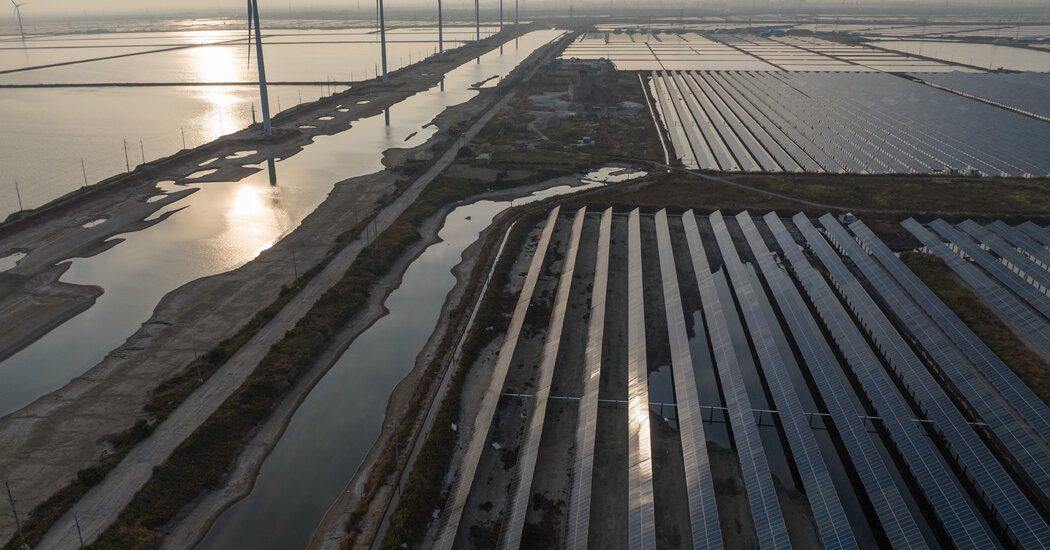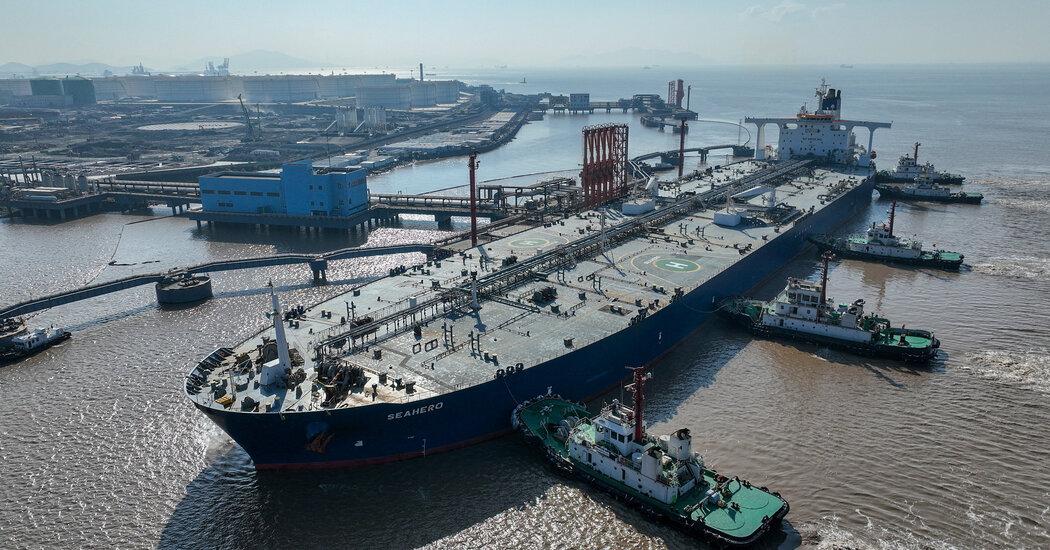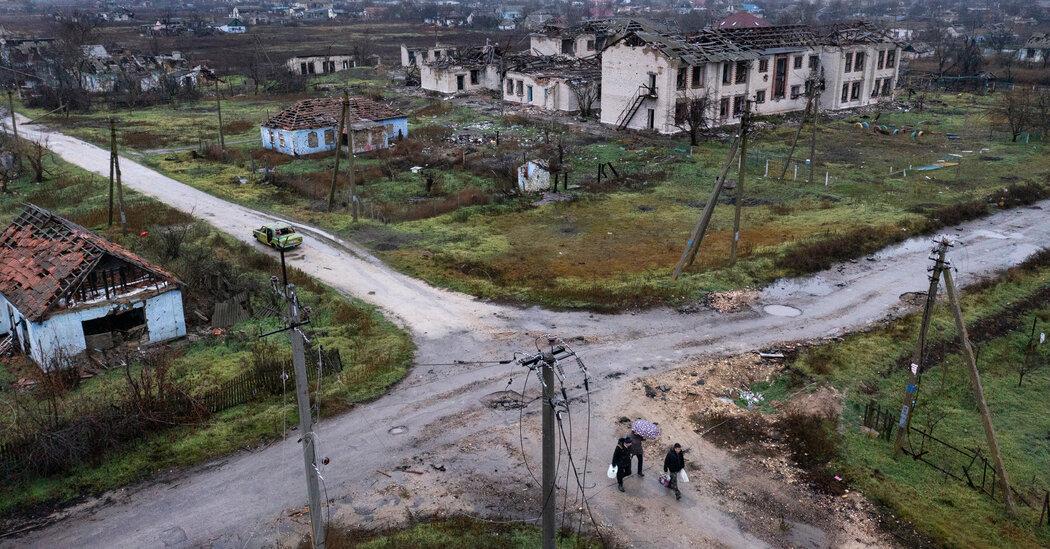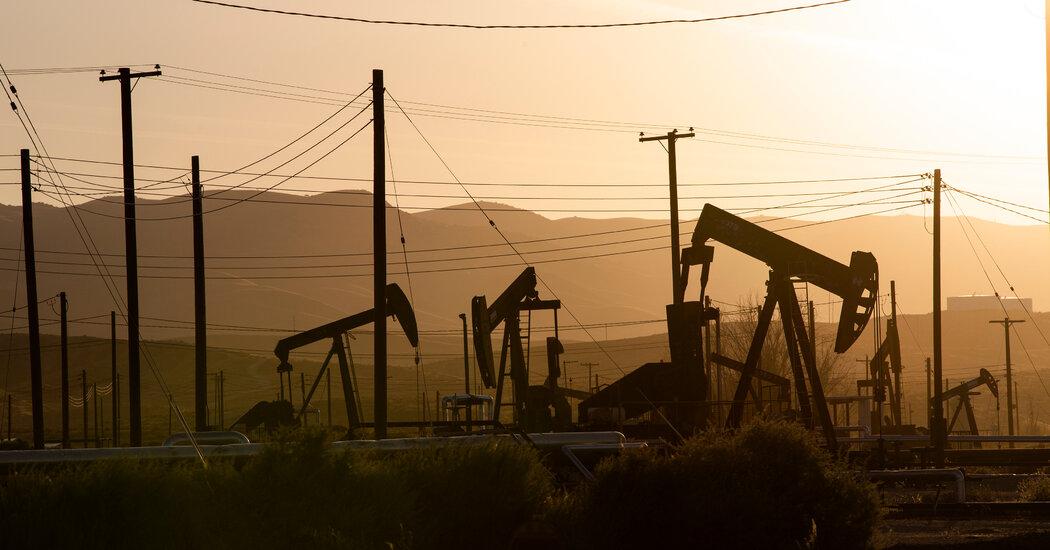China unleashed the full might of its solar energy industry last year. It installed more solar panels than the United States has in its history. It cut the wholesale price of panels it sells by nearly half. And its exports of fully assembled solar panels climbed 38 percent while its exports of key components almost doubled. Get ready for an even bigger display of China’s solar energy dominance. While the United States and Europe are trying to revive renewable energy production and help companies fend off bankruptcy, China is racing…
Tag: Energy and Power
China Is Winning in Solar Power, but Its Coal Use Is Raising Alarms
China is installing about as many solar panels and wind turbines as the rest of the world combined, and is on track to meet its target for clean energy six years early. It is using renewables to meet nearly all of the growth in its electricity needs. Yet there is another side to that rapid expansion, one that is causing consternation in Washington at a critical period of climate diplomacy: China is also building new power plants that burn coal, the dirtiest of the fossil fuels, at a pace that…
Why What We Thought About the Global Economy Is No Longer True
When the world’s business and political leaders gathered in 2018 at the annual economic forum in Davos, the mood was jubilant. Growth in every major country was on an upswing. The global economy, declared Christine Lagarde, then the managing director of the International Monetary Fund, “is in a very sweet spot.” Five years later, the outlook has decidedly soured. “Nearly all the economic forces that powered progress and prosperity over the last three decades are fading,” the World Bank warned in a recent analysis. “The result could be a lost…
China’s Oil and Gas Use Fell in 2022 for First Time in Decades
With its economy severely hampered by stringent measures to curb the spread of Covid-19, China’s oil and gas consumption declined in 2022 for the first time in decades, the International Energy Agency said on Friday. But after China’s recent reversal of its lockdown policies, the agency’s executive director, Fatih Birol, said he expected a sharp rebound in demand, which could mean higher energy prices in other markets. The reduction in Chinese energy use last year kept world prices from soaring even higher after Russia’s invasion of Ukraine, giving relief to…
The War in Ukraine Upended Energy Markets. What Does That Mean for the Climate?
This article is part of our special report on the World Economic Forum’s annual meeting in Davos, Switzerland. As world leaders, chief executives and nonprofit leaders descend on Davos, Switzerland, for the annual meeting of the World Economic Forum next week, war will be raging about 1,000 miles away. Russia’s invasion of Ukraine almost one year ago has reordered the geopolitical landscape, sent ripples through the global economy and brought trench warfare back to Europe. Yet beyond the enormous human suffering and catastrophic damage inflicted on Ukraine, its people and…
Oil Prices Slide as Investors Worry Energy Demand Is Slowing
HOUSTON — Saudi Arabia is slashing oil exports. U.S. crude oil in storage is dropping. Members of the European Union will soon sharply reduce how much fuel they buy from Russia. Those developments would normally send oil prices sharply higher. Yet oil prices have been sliding. The U.S. benchmark, West Texas Intermediate, fell to about $80 a barrel on Friday from more than $90 at the start of the month. The global supply of oil appears to be falling, but many oil traders think that demand is heading down even…
U.K. Moves to Attract Financing for Nuclear Plants
The British government said on Tuesday that it would introduce legislation enabling a form of financing for nuclear power stations that it hopes will attract investors willing to put up billions of pounds to build new facilities. The government’s move, which would require consumers to help pay for these plants as they are being built, is expected to provide a green light for a long-delayed new nuclear station northeast of London, estimated to cost £20 billion ($27.5 billion). The British subsidiary of Électricité de France, the French utility, has done…
China’s Power Crunch Exposes Tensions Ahead of Key U.N. Climate Summit
Renewable energy in inland China sometimes generates more electricity than nearby consumers can use, but then at other times produces too little. Just five years ago, three inland regions that create abundant solar and wind energy power — sparsely populated Inner Mongolia, Xinjiang and Gansu — were wasting up to two-fifths of that power. To address this problem, China has built ultra-high-voltage transmission lines linking the country’s interior to hubs near the coast. But connectivity still has a ways to go. “New demand can more than be met by cleaner…







